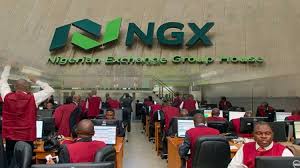21 October 2011, Sweetcrude, Abuja- The Federal Government has urged operators in the nation’s extractive industries to operate in a professional manner that will ensure the sustainability of the environment and help create immense opportunities for wealth for millions of Nigerians.
The Minister of Mines and Steel Development, Arc. Musa Mohammed Sada, who stated this during a Stakeholders’ Forum on Compliance and Enforcement, organized by the Council of Nigerian Mining Engineers and Geoscientists (COMEG), in Abuja, further stressed that professional bodies within the industry should collaborate towards upholding standards and best practices in their various practices.
According to him, “There is no gainsaying that an established and well-managed extractive industry will accelerate economic, social and political growth of the country through the provision of gainful employment and a rise in national economic earnings. In addition, solid and liquid minerals development will provide local raw materials for industries and bring vital infrastructure and wealth to rural areas.”
Sada stressed that the mining industry is a global industry with many countries competing for exploration funds, adding that the government is generally creating an environment that will enable businesses to flourish. “There is therefore a need to develop the mineral resources of the country along policies, actions and strategies that are conducive to investment. The policy thrust would respond to the new and global developments in the sector and furthermore develop human capital in the extractive industry and, most importantly, help develop the legal and regulatory framework consistent with international best practices.”
According to him, the global increase in demand for extractive industry commodities has enhanced the need for quality and adequate manpower for the sector. “Government recognizes the need to continuously develop skills in the extractive sector in order to meet with the demand of professionals in the extractive sector.
Sada pointed out that “registration of a professional is a testimony that the individual has achieved a standard of proficiency sufficient to guarantee the possession of the knowledge and skills required for the efficient practice of his area of discipline.”
He noted, however, that members are required to upgrade their skills as best as possible in the light of advancing knowledge in their respective professions. “A member is therefore expected to, at all times, possess and exercise the skills and judgment of an average member of the profession practicing his or her discipline.”
Also speaking at the meeting, the Registrar of COMEG, Engr. Jonathan Ikeako
Ikeako said COMEG has therefore fashioned out a Code of Conducts and Ethics whose objectives is to ensure the proper exercise of these skills within the confines of the prevailing knowledge and facilities of these disciplines.
According to him, a member engaged in work related to geosciences, mining, mineral beneficiation and metallurgy shall in discharging his or her responsibility uphold and the honour and dignity of the profession.
“The member shall at all times act in a judicious manner and with full regard to the code of practice of the profession in accordance with the rules laid down in the Code of Conduct and Ethics. The honesty of purpose of every practitioner must always be transparent and must, as far as possible, act only withint he confines of his or her area of discipline,” he noted.
The forum was meant to sensitize practitioners especially the practitioners in the Mining and Quarrying industries, oil and gas as well as water and well-drilling and construction on the need to regulate their activities through formal registration with COMEG in accordance with the Decree (now Act) No 40 of 1990.
“The main thrust is to regulate and control the training, deployment, discipline and practices of professionals, who work in the extractive industries. These professionals include geologists, mining engineers, metallurgists, mineral processors, hydrogeologists, hydrologists and in other related fields,” he stated.
He noted that of particular interest, however, is the fact that the Council regulates the training of the specialized professionals who produce more than 80 percent of Nigeria’s foreign exchange earnings.
Basic operations and activities of COMEG include to maintain a register of all persons who are authorized to practice the specialized professions in Nigeria; approve any course of training which is intented for persons seeking to become members of the professions as stipulated in the Decree; approve any institution either in Nigeria or elsewhere, which the Council considers to be properly organized and equipped for conducting the training of relevant professions to be registered.
The Council also sets standards that candidates who wish to be registered must reach in order to show that such candidates have sufficient knowledge and skill to practice the relevant professions, besides maintaining discipline in the professions.




